

Alt Goes Mainstream: The Latest on Alternative Investments, WealthTech, & Private Markets
Michael Sidgmore
Alt Goes Mainstream podcast is the place to turn to for interviews with some of the brightest and most experienced minds in the world at the intersection private markets and wealth management. AGM dives into investment strategies like private equity (PE), private credit, venture capital (VC), secondaries, GP stakes, infrastructure, real estate, wealth management, and comprehensively covers tools and frameworks for approaching private markets, such as asset allocation, evergreen funds, model portfolios, and more. For anyone looking to invest into private markets (from experienced wealth managers to family offices to the individual investor looking for a more diversified investment portfolio), you’ll hear inside stories from executives and founders at some of the world’s largest financial institutions, alternative asset managers firms, and wealth management firms. More than a personal finance podcast, Alt Goes Mainstream dives deep into trends, investment strategies, firm building lessons, and innovative technologies that are enabling investors to access private markets.
Episodes
Mentioned books
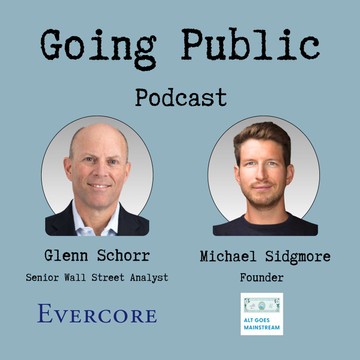
Dec 5, 2024 • 44min
Going Public with Evercore's Glenn Schorr - Ep. 2
Glenn Schorr, a top analyst from Evercore ISI, dives into the intertwining of asset management and hip-hop philosophy, riffing on how 'fees rule everything around me.' He discusses the critical balance between fee generation and alpha returns in a competitive market. Glenn also explores the evolving landscape of private markets versus public firms, the impacts of regulatory changes, and the challenges of limited fundraising in the current climate. His insights offer a fascinating look at the future of alternative investments.
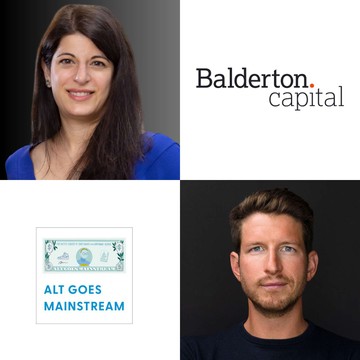
Nov 21, 2024 • 51min
Balderton's Rana Yared - a masterclass on building global companies out of Europe
In this engaging discussion, Rana Yared, a General Partner at Balderton Capital and former Goldman Sachs executive, dives into the thriving European investment landscape. She emphasizes revolutionary innovations in fintech, spotlighting companies like Revolut and iCapital. Rana also highlights how Europe is becoming a hub for global tech firms. The conversation touches on the evolving dynamics between strategic investment and venture capital, alongside the need for adaptability and strong relationships in an increasingly competitive market.
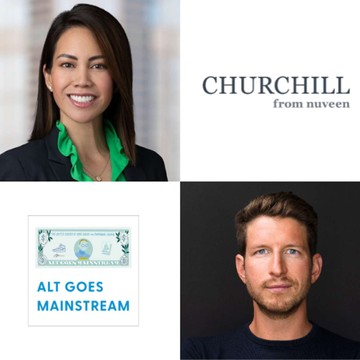
Nov 14, 2024 • 55min
Churchill Asset Management's Alona Gornick - the evolution of private credit, the power of permanent capital, and the importance of the product specialist
Join Alona Gornick, Managing Director at Churchill Asset Management, as she shares her expertise in private credit. She discusses the evolution of credit investing and addresses the potential risks of a private credit bubble. Alona emphasizes the importance of scale in securing deals and the strategic benefits of permanent capital. With insights from her vast experience, she highlights the critical role of product specialists in navigating the wealth channel and the transformative potential of innovative deal structures.
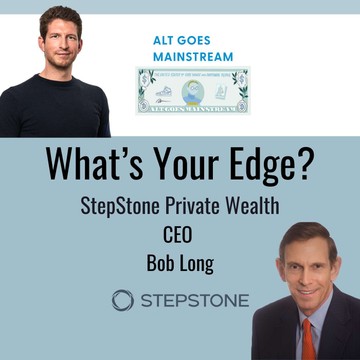
Nov 7, 2024 • 58min
What's Your Edge?: StepStone Private Wealth's Bob Long
Today marks the launch of a new show on Alt Goes Mainstream: What’s Your Edge?Every person, every company, every fund has something that makes them special.Makes them stand out from the crowd.Gives them an unfair advantage.Tips the scales in favor of success.In this episode, I ask our special guest, Bob Long, “What’s Your Edge?”Bob Long is CEO of StepStone Group’s Stepstone Private Wealth. He has three decades of experience in the private markets and has led investment teams for global firms in both the general partner and the limited partner role. He has served as the CEO of two publicly-traded companies focused on expanding private market access for high net worth investors.Prior to StepStone Private Wealth, Bob was the CEO of OHA Investment Corporation, a publicly-traded specialty finance company. Previously, he co-founded Conversus Capital, the largest publicly traded fund of third-party private equity funds with $3 billion of AUM and served as its CEO. Previously, he led Bank of America’s $7 billion strategic capital division. Early in his career, Bob served as the lead in-house counsel for a large portion of Bank of America’s Investment Banking Division and worked as a securities lawyer for a major law firm.A recognized industry leader, Bob was named one of 50 “GameChangers” by Private Equity International, has been profiled in the WSJ, and hosted CNBC Squawk Box Europe on numerous occasions.On today’s podcast, Bob and I discuss the nuances of evergreen funds and the unique features and offerings of StepStone Private Wealth’s evergreen strategies.Thanks Bob for coming on the show to share your wisdom, experience, and your edge.Show Notes00:00 Introduction00:38 Welcome to What's Your Edge?01:01 Meet StepStone Private Wealth CEO Bob Long: A Leader in Private Markets03:09 Lessons from Public Markets04:34 Evergreen Fund Structure05:27 Benefits of Evergreen Funds06:25 Immediate Investment Advantage07:20 Evergreen Funds and Financial Advisors07:35 Evergreen Fund Liquidity08:04 StepStone's Approach to Evergreen Funds09:09 StepStone's Strategy and Structure09:32 Balancing Inflows and Outflows10:34 Importance of Deal Flow11:04 Balancing Liquidity and Returns11:56 StepStone's Competitive Advantage13:52 Portfolio Construction14:57 Diversification in Private Markets16:06 Evergreen Fund Structures19:44 Liquidity in Private Markets27:57 Key Takeaways for Investors29:53 Operational Due Diligence Essentials30:13 Key Questions for Evergreen Fund Structures30:36 Understanding Fee Structures30:42 Management Fees and Leverage31:33 Incentive Fees Explained32:19 Administrative Costs and Transparency32:34 Fee Compression in Evergreen Funds34:11 Portfolio Construction Strategies34:24 Investing in Secondaries37:10 Psychology of Allocators38:04 Accessibility and Minimum Investments38:43 Investor Profiles and Strategies40:36 Transparency and Performance41:40 Rebalancing and Evergreen Funds43:10 Model Portfolios and Private Markets45:19 StepStone's Investor-Centric Approach46:15 StepStone's Competitive Edge48:31 Growth of Secondaries and Private Markets51:37 Future Trends in Private Markets55:30 Philanthropy and Purposeful Stewardship
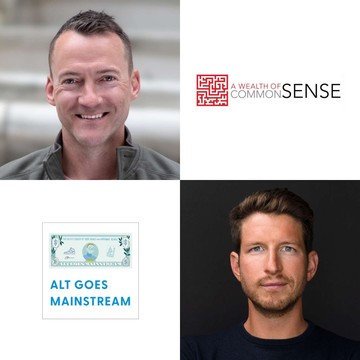
7 snips
Oct 30, 2024 • 52min
Ritholtz Wealth Management's Ben Carlson - bringing a wealth of common sense to asset allocation
Ben Carlson, Director of Institutional Asset Management at Ritholtz Wealth Management, is a finance expert and author known for his practical insights on investing. In this discussion, he emphasizes the crucial role of asset allocation in crafting investment strategies. Carlson delves into the complexities of having too many choices and the importance of documenting every decision. He also explores the advantages of private markets and the nuances of appealing to younger investors, highlighting the balance between transparency and strategy in wealth management.
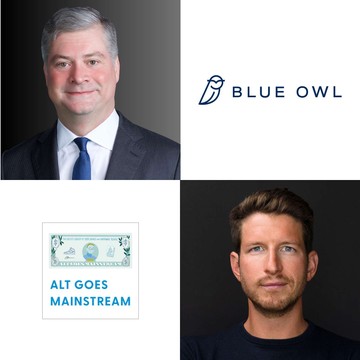
27 snips
Oct 23, 2024 • 1h 6min
Blue Owl GP Strategic Capital's Sean Ward - transforming GP stakes into an industry
Sean Ward, Senior Managing Director at Blue Owl's GP Strategic Capital, shares insights from his extensive career in finance and legal. He discusses the evolution of GP stakes investing, highlighting key milestones like Bain Capital's $1 billion post-GFC investment. Ward emphasizes the importance of legal expertise in crafting tailored agreements and navigating regulatory challenges. He explores how GP stakes can enhance capital management for asset managers and the strategic differences between private equity and venture capital, shedding light on the unique opportunities in alternative asset management.
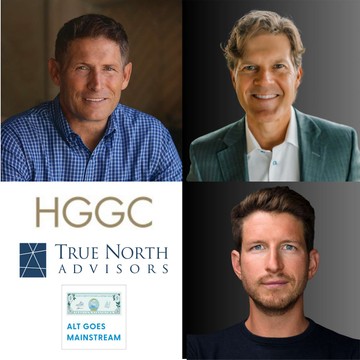
8 snips
Oct 16, 2024 • 57min
HGGC's Steve Young & True North Advisors' Scott Wood - "the score takes care of itself" on the field and in investing
Steve Young, the founder of HGGC and a three-time Super Bowl champion, teams up with Scott Wood, founder of True North Advisors, a wealth management firm specializing in alternatives. They discuss the significance of shared values in business and the phrase 'the score takes care of itself' as a guiding principle. The duo explores long-term relationships in finance, the innovative fee-only model, and how cultural alignment drives successful partnerships. Their conversation highlights the evolving landscape of alternative investments and the importance of mentorship in shaping the industry.
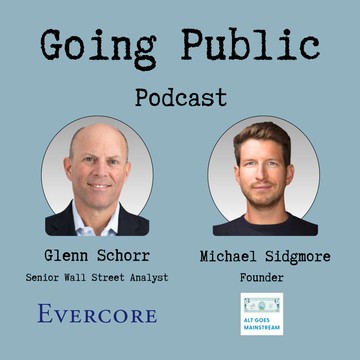
7 snips
Oct 9, 2024 • 55min
Going Public Ep. 1 with Evercore's Glenn Schorr
Glenn Schorr, Senior MD at Evercore ISI and a top analyst in finance, shares his insights on the meteoric rise of alternative asset managers going public, notably Blackstone's entry into the S&P 500. He discusses the challenges of navigating acquisitions, the impact of interest rates on private credit, and strategies for managing dry powder in private equity. Glenn also highlights Blackstone's recovery strategies and the shift from traditional banks to innovative private credit firms, shedding light on the evolving financial landscape.
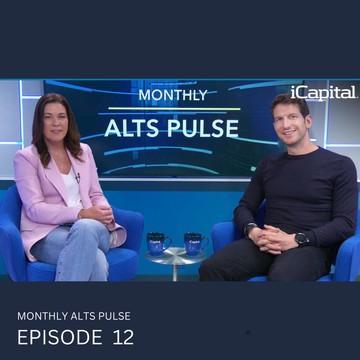
Oct 4, 2024 • 26min
Monthly Alts Pulse Ep. 12: Taking the pulse of private markets and the future of AI and automation in private markets with Eileen Duff, Managing Partner & Chief Client Success Officer at iCapital
Eileen Duff, Managing Partner & Chief Client Success Officer at iCapital, shares her extensive expertise in alternative investments. She delves into the transformation of distribution in private markets and the role of technology, especially AI and automation, in enhancing client experiences. Eileen discusses strategies for engaging diverse clients and the significance of improved data connectivity. She emphasizes the need for better education on investment products and the efficiencies gained through automation in post-investment processes.
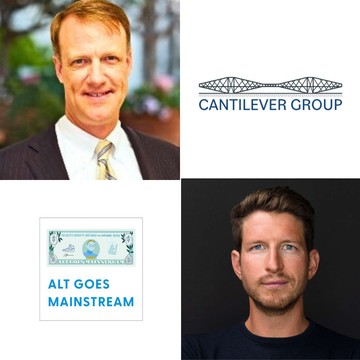
22 snips
Sep 25, 2024 • 49min
Cantilever Group's Todd Owens - the untapped opportunity in GP stakes
Todd Owens, Co-founder and Managing Partner of Cantilever Group, brings over 30 years of experience in financial services. He discusses the untapped potential in GP stakes and the innovative strategies Cantilever employs to support middle-market asset managers. Todd highlights the transformative journey of alternative asset management, the importance of strategic partnerships, and the unique opportunities presented by first-time funds. The conversation also delves into team dynamics and the core values that drive successful investments in this evolving landscape.


